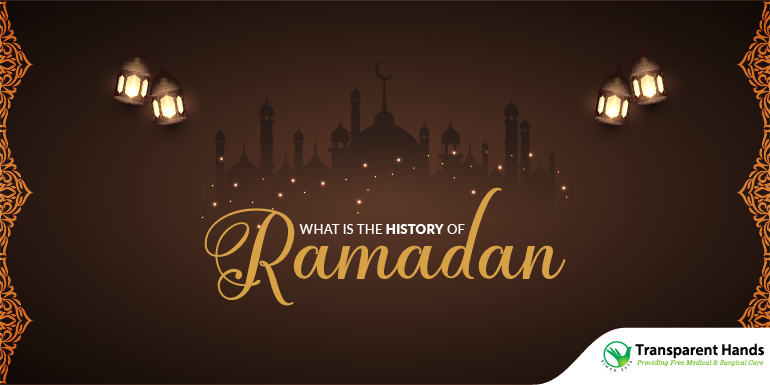What is the history of Ramadan?

Introduction
We are not far away from yet another holy month of Ramadan to grace our lives. In the Islamic calendar, the month of Ramadan holds significant importance, regarding a lot of important events. The sacredness of Ramadan makes it a month full of blessings and nothing else. Millions of Muslims fast every Ramadan with the purpose of spiritual cleansing. However, the number of people who are aware of the history of Ramadan is shockingly too low. So, what is the history of Ramadan?
By history, we don’t mean the deeper insights into this holy month. Here, it is the basic facts about Ramadan that we allude to. So, what better time than now to recall what Ramadan is all about and what historical events adorn its timeline? Let’s keep it simple and seek an answer to this question: What is the history of Ramadan?
What is Ramadan?
The etymology of the word Ramadan
It might be surprising to some of us, but Ramadan isn’t a unique feature of the Islamic calendar. Rather, it was also a part of earlier calendars, followed by Arabs a long time before Islam announced itself in Arabia. To understand the historical prospects associated with Ramadan, we must start with the root of the word itself. Ramadan stems from the Arabic word Ramda, which means dry or scorching heat. It is implied that the fasting practice burns the sins, just like a scorching fire. It makes sense, doesn’t it? The ones who fast regularly every year will be able to relate to this definition in its most genuine spirit!
An important pillar of Islam
Do you know about the five pillars of Islam? Well, these are the acts, fundamental to every Muslim. There are situational factors involved, but once those are satisfied, these acts are obligatory for every Muslim. These pillars include Shahadat, Zakat, Hajj, Salah and of course, swam or fasting! Now, the significance of Ramadan becomes more evident than ever. One has to fast if he or she claims to be a true Muslim at heart. Fasting is a centuries-old tradition practiced by Muslims. There is no doubt that it will be practiced for centuries to come as well. Reason? The binding nature of the act of course!
A month of introspection
Ramadan provides us with an opportunity to analyze how we spent the preceding year. Was it a year when we kept running after worldly desires and affairs? Or was it one spent in satisfying the Almighty and His subjects i.e. humanity? This introspection is hardly possible in any other month, simply because of the unique sacredness associated with Ramadan. Self-analysis then must lead to repentance. And we all know about the benevolence of Almighty Allah (SWT)! The doors of forgiveness are open for everyone, till the very last moment. Repentance then leads to an improvement in behavior, which is extremely beneficial for self and society!
The Quran and Ramadan
In 610 A.D. the holy book of the Quran was revealed to the Prophet Muhammad (PBUH). Can you guess the month in which this event took place? Yes, you guessed it right! It was the holy month of Ramadan! The angel Gabriel appeared to the Prophet (PBUH) and made the revelation. The night on which this event took place became a significant event in Muslim history and the history of Ramadan. This night is known as the Night of Power! You can already see that the history of Ramadan is enriched with these milestones which are extremely important to Muslims.
4 Ramadan Traditions You Did Not Know
What marks the beginning of the holy month of Ramadan?
The history of Ramadan tells us that it has always been declared after sighting the crescent-shaped moon. This was a tradition of the times of the Prophet (PBUH) and is practiced to date. The Islamic calendar is based on the lunar phases and hence, moon sighting is a rather important ritual. Sometimes, it gets a little tricky because of the weather conditions. The crescent isn’t visible to the naked eye, and hence, the holy month begins one day later. It is a beautiful historical tradition which creates quite a buzz!
Conclusion
Ramadan is a month embedded with a lot of important historical events in Muslim history. The history associated with this holy month itself is quite amazing as well, to say the least. It is not possible to fast in the most actual sense, without understanding the context associated with the holy month of Ramadan!










Leave a Reply